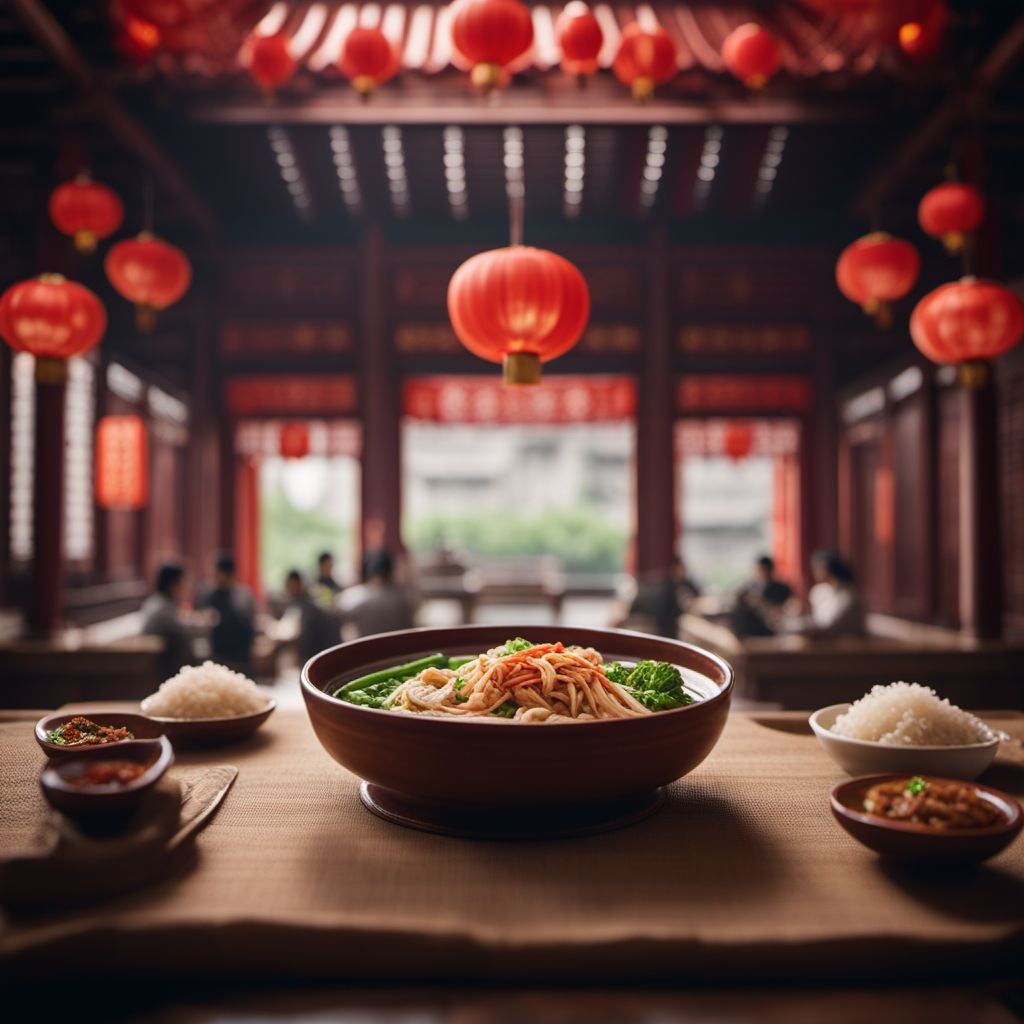
Cuisine
Anhui cuisine
Anhui cuisine is known for its use of wild herbs, game and poultry, and simple methods of preparation. It is also characterized by its emphasis on the use of oil and sauce, and its preference for braising and stewing over frying and stir-frying. The cuisine is often described as hearty and rustic, with a focus on natural flavors and textures.
Typical ingredients
Wild herbs, Game and poultry, Bamboo shoots, Mushrooms, River fish, Pork, Soy sauce, Vinegar, Ginger, Garlic, Scallions, Dried chilies
Presentation and garnishing
Anhui cuisine is typically presented in large communal dishes, with an emphasis on natural colors and textures. Garnishes are simple and understated, with a focus on highlighting the natural beauty of the ingredients.
Anhui cuisine is also known as Huizhou cuisine, after the historical region of Huizhou in Anhui province. The cuisine is often associated with the scholar-gentry class, who were known for their refined tastes and appreciation of natural beauty.
More cuisines from this region...
Sichuan cuisine, Cantonese cuisine, Shanghai cuisine, Shanxi cuisine, Zhejiang cuisine, Putian cuisine, Shandong cuisine, Chiuchow cuisine, Teochew cuisine, Yunnan cuisine
History
Anhui cuisine has a long history dating back to the Qin Dynasty (221-206 BC). It originated in the Huangshan Mountains of Anhui province, where the local people developed a cuisine based on the ingredients available in the region. Over time, Anhui cuisine has been influenced by neighboring cuisines, particularly those of Jiangsu and Zhejiang provinces. Today, Anhui cuisine is enjoyed throughout China and around the world.
Cultural significance
Anhui cuisine is closely associated with the Huangshan Mountains, which are considered a symbol of the region's natural beauty. The cuisine is also known for its use of wild herbs and game, which are highly valued for their medicinal properties. Anhui cuisine is often served at banquets and special occasions, and is considered a symbol of hospitality and generosity.
Health benefits and considerations
Anhui cuisine is considered to be healthy and nutritious, with a focus on natural ingredients and simple methods of preparation. However, some dishes may be high in fat and sodium, so it is important to consume them in moderation.
Anhui cuisine recipes Browse all »
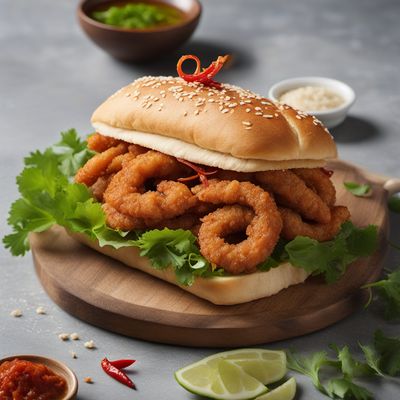
Anhui-style Crispy Squid Sandwich
Golden Crispy Squid Delight

Anhui-style Cavacas
Fluffy Delights: Anhui-inspired Cavacas
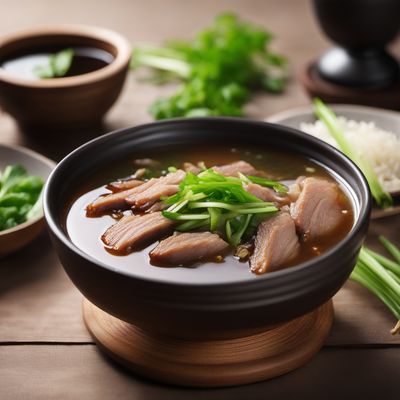
Anhui-style Pork Soup with Crispy Skin
Crispy Skin Delight: Anhui-style Pork Soup
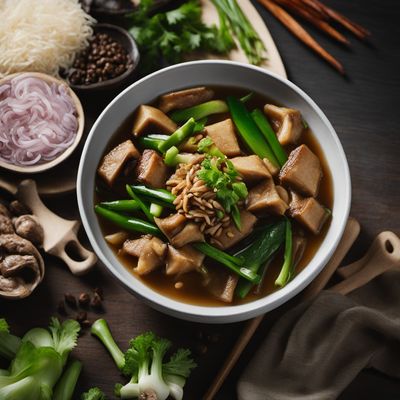
Anhui-style Heidensterz
Savory Millet Porridge with Anhui Flavors

Anhui-style Fluffy Flatbread
Anhui Delight: Fluffy Flatbread with a Twist

Anhui-style Braised Guinea Fowl
Tender and Flavorful Braised Guinea Fowl with Anhui Twist

Anhui-style Koki Beans
Savory Anhui Delight: Koki Beans with a Twist

Anhui-style Crispy Rice Cake with Chicken (Tahchin)
Golden Crispy Rice Delight with Tender Chicken - Anhui-style Tahchin
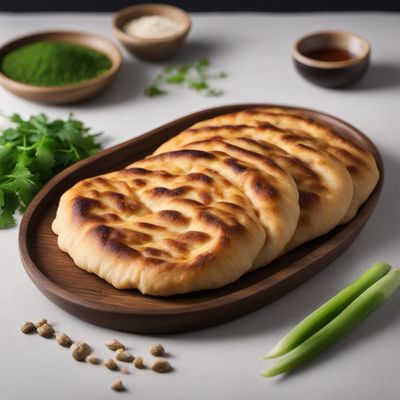
Anhui-style Stuffed Flatbread
Crispy Stuffed Flatbread: Anhui's Delightful Twist on a Classic
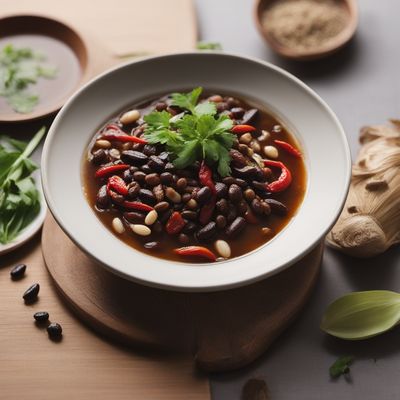
Anhui-style Fagiolata
Savory Bean Stew with Anhui Flair
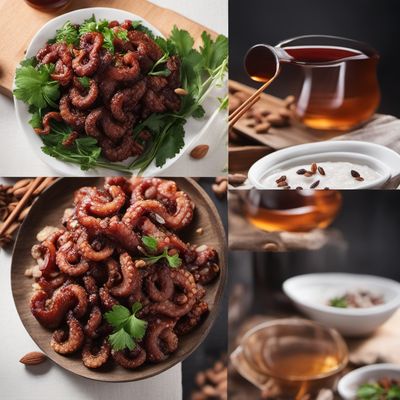
Anhui-style Almond Octopus
Silky Octopus Delight with Anhui Flair
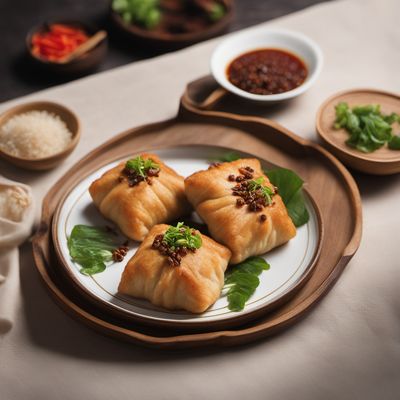
Anhui-style Crispy Pork Buns
Crispy Pork Delights: Anhui's Irresistible Pogatscherl